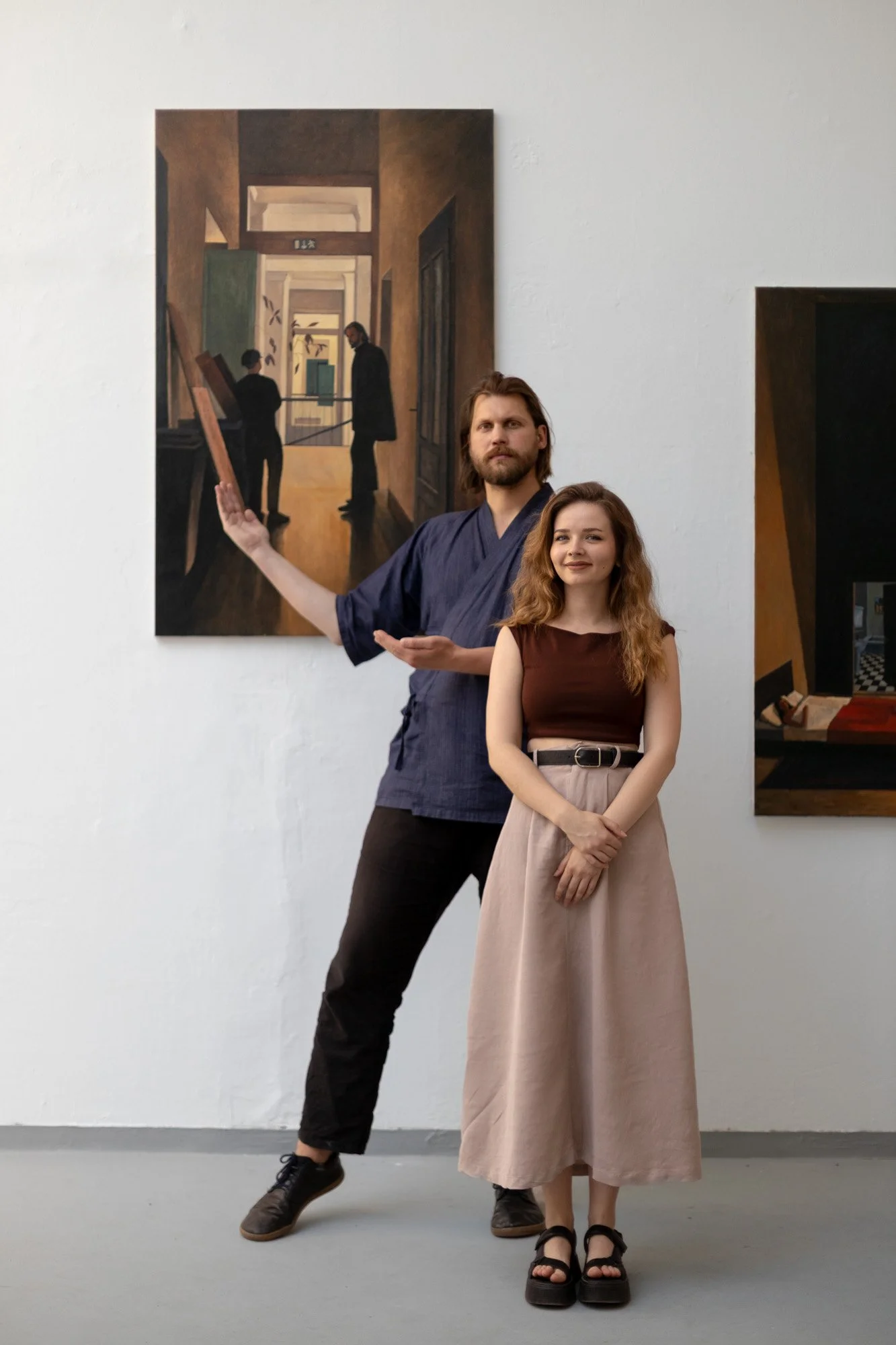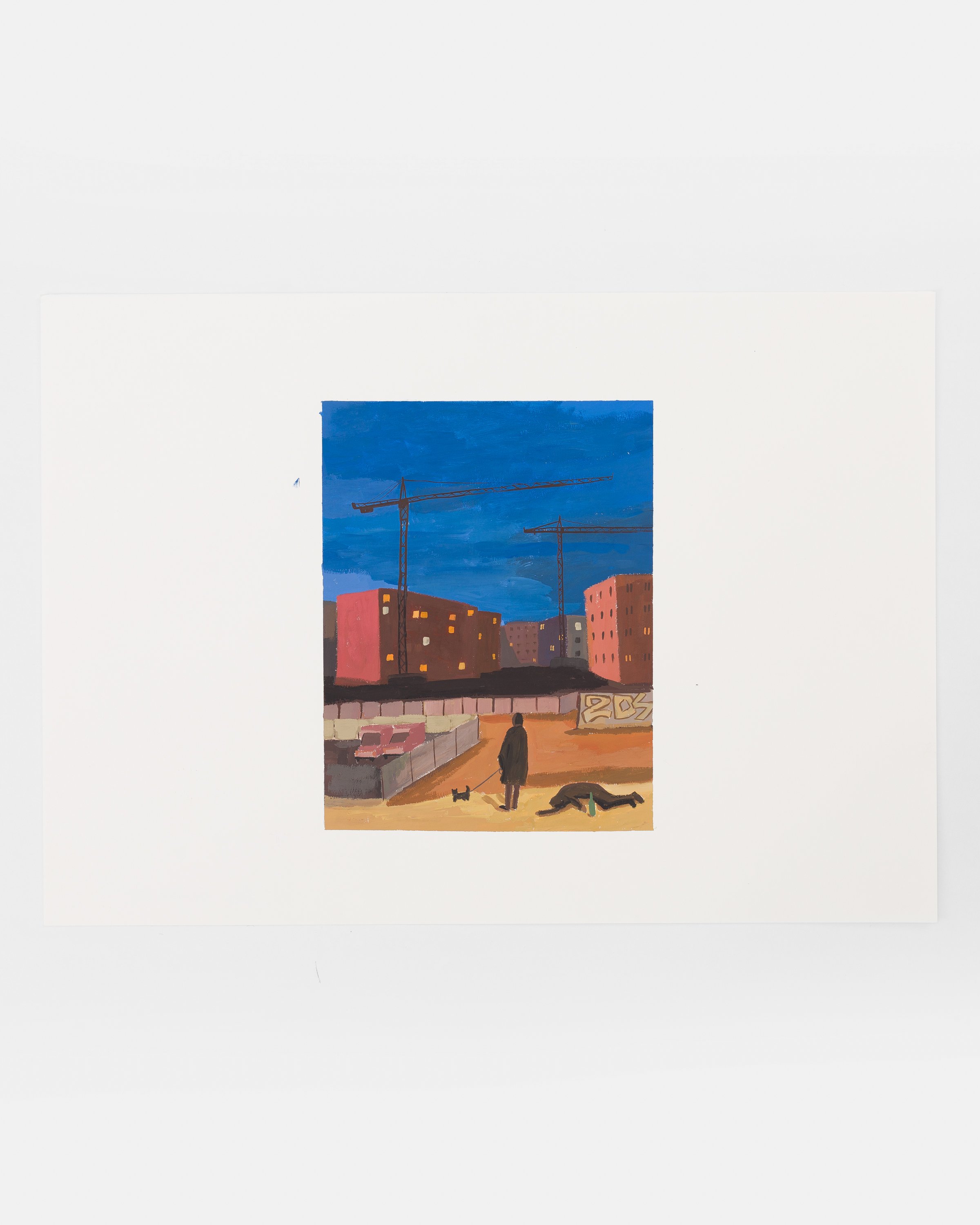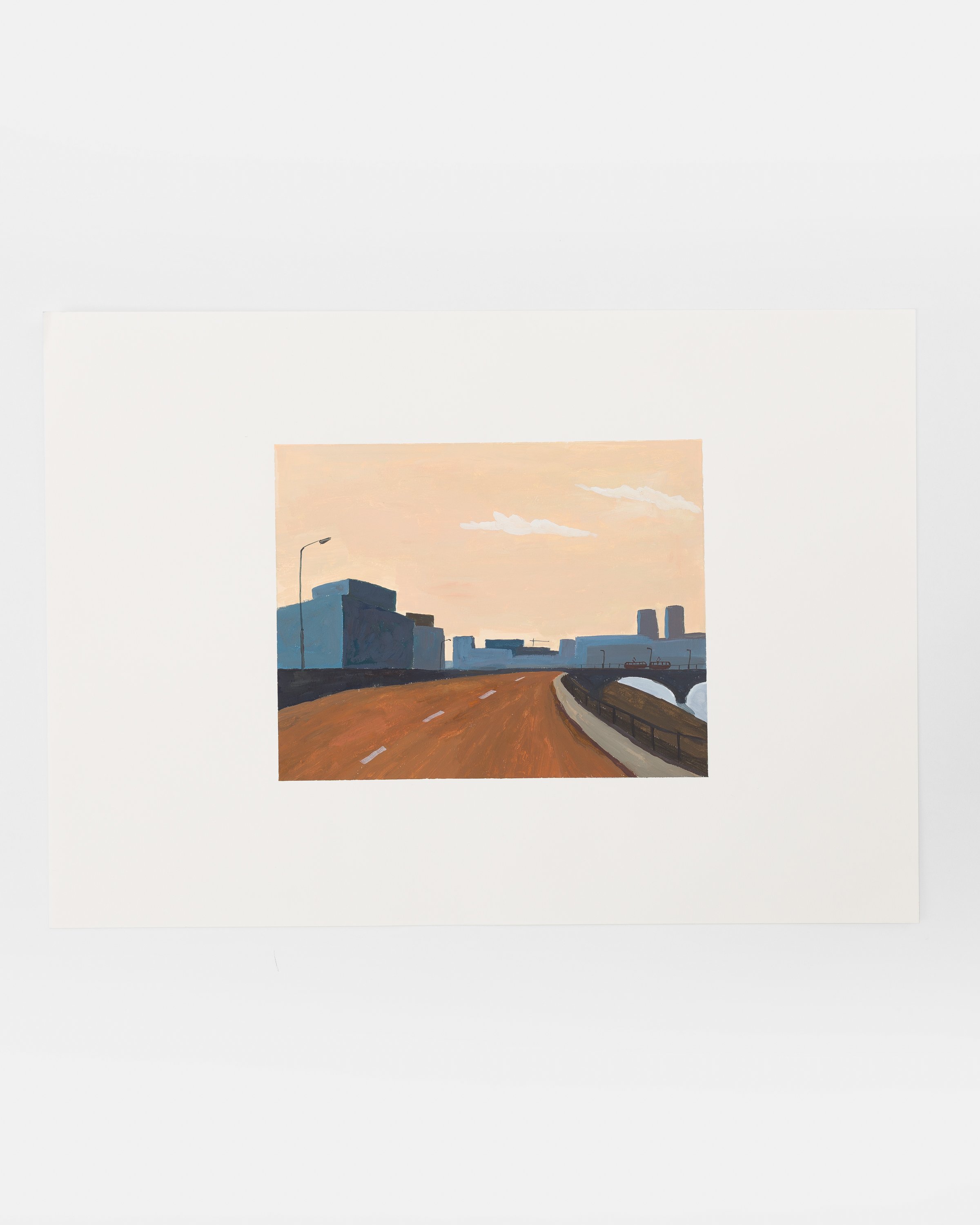Ilona Koroman
HIDDEN Podcast: Ilona Koroman - Behind the Window
Description:
In this in-depth episode of the HIDDEN Podcast, Czech painter Ilona Koroman speaks from the middle of her diploma installation at the Academy of Fine Arts in Prague (AVU). Graduating in 2025 from the Drawing Studio under Alice Nikitinová and Matyáš Smetana, she reflects on her path through multiple studios, a formative semester in Carrara, and the shifts in her approach to figuration, space, and colour.
From her early plein-air works to carefully constructed, fictional interiors and cityscapes, Koroman’s paintings balance intimacy and observation, often framed through windows—both literal and symbolic thresholds between the public and the private.
What You’ll Discover
From Studio to Studio – Why Koroman moved through three AVU studios (Painting I, Painting III, and Drawing) and how each shaped her practice.
Carrara Influence – How a semester in Italy’s marble capital expanded her material curiosity, leading her to experiment with sculpture, bronze casting, and a brighter palette.
Diploma Concept – The series Za oknem (Behind the Window) and its focus on constructed spaces, narrative fragments, and the tension between interior safety and exterior observation.
Compositional Play – Embracing early Renaissance spatial oddities, elongated walls, and architectural distortions to heighten atmosphere.
Palette Philosophy – Why earth tones dominate her work, and the ongoing debate about whether to radically expand or further limit her colour range.
Material Rituals – From hand-stretching and priming canvas to avoiding store-bought grounds, why material control is central to her process.
Criticism and Resilience – Navigating harsh feedback during her studies and finding validation in the public’s response to her diploma work.
Standout Quotes from the Episode
“A window is never just a window—it’s a line between private and public, but it can also work in reverse. Sometimes you’re the one being watched.”
“For me, oil is slow, it’s patient. Tempera is for catching a moment. Each has its place, but I can’t paint on a canvas I didn’t stretch myself.”
“The harshest critique I ever got pushed me the most. In the end, the audience’s reaction mattered more than any grade.”
Ilona Koroman
is a Prague-based painter whose work captures the subtle tension of everyday environments. Her compositions—housing estates, tram lines, empty roads, nighttime cityscapes—reflect a world in transition: not quite melancholic, yet never fully at ease.
Born outside the Czech Republic, she moved to Prague as a teenager, initially studying tourism before committing to fine art. She graduated from the Academy of Fine Arts in Prague (AVU) in 2025, completing her diploma in the Drawing Studio under Alice Nikitinová and Matyáš Smetana, after formative periods in Painting I (Robert Šalanda, Lukáš Machalický) and Painting III (Josef Bolf, Marek Hošek). A semester at the Accademia di Belle Arti di Carrara in Italy deepened her material curiosity, leading to experiments with sculpture, bronze casting, and a brighter colour palette.
In her recent work, including her diploma series Za oknem (Behind the Window), Koroman shifted from gouache on paper to oil on canvas, expanding both the physical and emotional scale of her scenes. While grounded in observation, her painting process remains intuitive and slightly detached—as if the world she paints is remembered, glimpsed in passing, or refracted through fiction.
Her imagery often balances stillness and unease: quiet cinematic moments that feel paused rather than staged, populated by solitary figures, distant buildings, or empty interiors. Architectural distortions, elongated walls, and early Renaissance spatial quirks heighten the atmosphere, while a restrained, earth-toned palette reinforces her interest in mood over description.
Koroman belongs to a younger generation of Czech painters shaped by everyday life, poetic realism, and a deep attention to atmosphere—where even the most ordinary view can become a stage for introspection.






